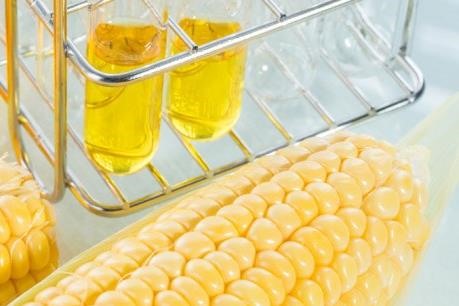A group of sugar producers has asked for Government intervention as the industry struggles to compete with corn syrup imports.

A group of sugar producers has asked for Government intervention as the industry struggles to compete with corn syrup imports.
The Viet Nam Sugarcane and Sugar Association (VSSA) asked the Government to intervene in adjusting tax incentive policies on imported High-Fructose Corn Syrup (HFCS), or liquid sugar extracted from corn, to create a fair playing ground with locally-produced sugarcane products.
The association also asked the Ministry of Industry and Trade to consider investigating the possibility of applying special safeguard methods on HFCS.
The recommendations were released as sugarcane businesses face challenges in the level of consumption of local sugar products as well as pressure from competition posed by increasing imports of HFCS products into the country, which they say cause serious damage to the domestic sugar industry.
According to a report from the Viet Nam General Department of Customs, the volume of imported HFCS dramatically accelerated between 2015 and 2017, with imports in 2017 totalling 89,343 tonnes, up 31.7 per cent from 2015.
These were mainly imports from China and South Korea, representing more than 90 per cent of total output and import value.
HFCS is much cheaper than local sugar, and prices are expected to decline further due to improvements in production technology. In 2015, the price of white sugar was US$630 per tonne compared to $496 per tonne of HFCS. In 2017, it was $702 and $398 per tonne of sugar and HFCS, respectively.
The difference between the average selling price of HFCS and sugar has remained high through recent years, increasing by 21.26 per cent in 2015, 36.63 per cent in 2016 and 43.3 per cent in 2017.
VSSA Chairman Pham Quoc Doanh said given this difference in prices, HFCS poses a major challenge to the domestic sugarcane industry.
Doanh said HFCS enjoyed a preferential imfport tax rate of zero per cent and no quota impositions, while preferential tariffs on sugar under quota stood at 5 per cent, and tariffs on non-quota white sugar and raw sugar were 85 per cent and 80 per cent, respectively.
In addition to damaging sugar production in the country, he said the inconsistent application of tax policies between sugar and HFCS products has caused damage to the State budget.
“If HFCS is seen as similar to sugar made from sugarcane, the import tax rate should be similar, not discriminatory,” Doanh said. “The level of incentive import duty imposed on HFCS must be at the level applied on sugar.” — VNS





